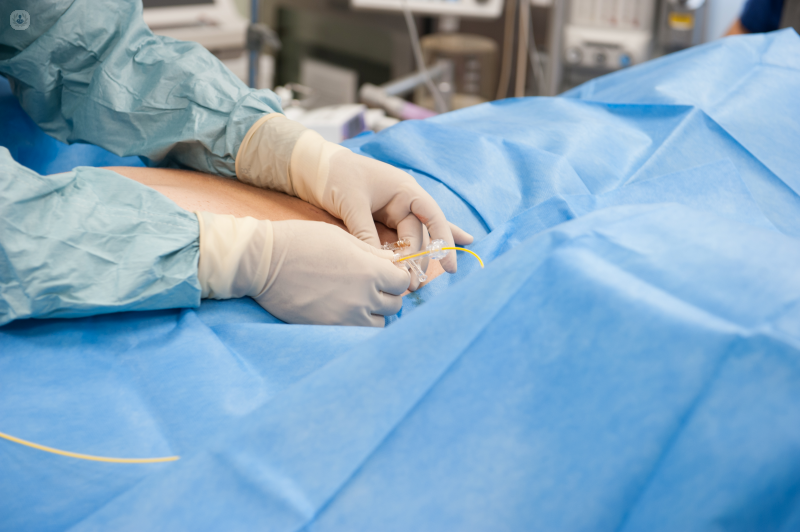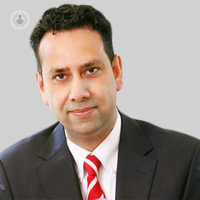Spinal endoscopy: a revolution in spinal surgery
Written by:In the past, spinal surgery was a major operation, involved a number of risks, and resulted in a long period of recovery. With the help of endoscopic tools, however, many of the procedures surgeons carry out can be done much more safely and quickly. We asked leading orthopaedic spinal surgeon Mr Mo Akmal to explain how spinal endoscopy works and which patients can benefit.

Spinal disc problems are the most common cause of back pain and sciatica. Open surgery (discectomy) for a slipped disc is a last resort option when treatment options such as physical therapy, spinal injections and pain management have failed to relieve the pain or there is neurological deterioration.
Spinal endoscopy is a new technique that allows surgery to be performed using a thin tube through which micro-instruments can be introduced to undertake the procedure.
How spinal endoscopy works
A special camera is used by the surgeon to magnify the view of the operation site and perform the surgery without the need for open access.
A thin tube is then passed up through the tailbone or directly into the back close to the area of treatment. The procedure is also known as epiduroscopy when the camera enters the epidural space.
The procedure takes approximately 30 minutes and can be performed under local anaesthetic with light sedation. General anaesthetic is not required – thereby minimising complications.
The advantages of endoscopy
Endoscopic spinal surgery has a number of advantages over open surgery, including:
- high success rates
- minimal or no blood loss
- no removal of muscle or bone
- reduced need for pain medications
- preservation of spinal mobility
- immediate recovery with the patient able to go home the same day
Risks and complications of endoscopy
In experienced hands the complication rates for this procedure are low and the patient can be discharged on the same day after surgery. Complications can however include nerve injury or a tear to the lining of the nerves (durotomy), which can result in a longer stay in hospital.
Which conditions can be treated with endoscopic techniques?
One of the most common procedures we can perform endoscopically is treatment of a slipped disc. The bulging or slipped disc can be treated by either removing the bulging fragment, or using laser to:
- vaporise a small part of the disc material
- destroy pain generating nerves inside the disc
- toughen the disc against further prolapse.
Endoscopy is also useful in the treatment of scar tissue, allowing us to safely apply laser to areas of the spine that need to be treated.
Read more: recovering from a slipped disc
Other conditions we can treat include:
- disc tears
- radiculopathy
- nerve pain
- sciatica
- spinal stenosis
Mr Mo Akmal offers a range of surgical solutions for slipped disc, spinal stenosis, and sciatica. To book a consultation with Mr Akmal and discuss whether endoscopic surgery is right for you, click here. Mr Akmal carries out endoscopic spinal operations at The Harley Street Hospital.



